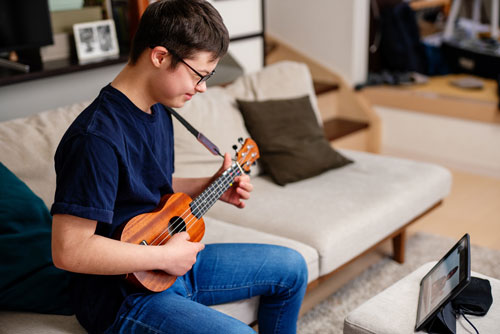Help Teens Deal With Pandemic
When the pandemic caused shutdowns in the spring, we thought that life would be back to normal by autumn. We were such optimists.
Now, as more schools are going to distance learning and more extracurricular activities are being canceled, the adolescents in our lives are missing their social outlets again.
Here are some tips to help teens deal with the disruptions caused by COVID-19:
- Recognize that their feelings of disappointment and loss are completely normal.
- Create distractions. Doing homework, watching a movie or cuddling up with a good book are ways to seek relief and find balance in the day-to-day. If your child doesn’t like to read, try graphic novels — Alex Rider series, Percy Jackson series, “The Hobbit,” “Nimona” and “Smile.”
- Teach them to divide the problem into two categories: things you can do something about and the things you can do nothing about. Instead of focusing on those things you have no control over, focus on what you CAN control and that is YOU. You can control how you act, what you say, what you do, how you behave and how you respond to someone. Think about, “How can I make this better?”
1. Identify the problem. For example, I miss my friends.
2. Generate ideas to solve the problem:- Send them a text.
- Video chat.
- Play an online game.
- Organize a movie night with a party app (such as Netflix Party).
- Encourage them to find new ways to connect with their friends and extended family. Try going old school and using snail mail.
- Focus on a new hobby or activity. Learn how to play the guitar or knit or decorate cakes. Take up yoga or hula dancing. There’s a YouTube video for how to do pretty much anything.
- Make a daily plan with your teens. Break the day into blocks of time. This will provide structure and prevent arguments. The daily plan should include:1. Wake up time. Be flexible — rather than 8:30 sharp — say between 8:30 or 9 a.m. for example.
2. Schoolwork block.
3. Exercise block.
4. Creative block. This could include painting, puzzles, Legos, playing music, sewing, learninga new language or a virtual tour of a famous museum.
5. Chores. Assign at least one indoor or outdoor chore to your teen to contribute to the overallwell-being of the family. - Cover the basics.
1. Exercise every day — 60 minutes is ideal.
2. Eat healthy food. Eat meals together as a family.
3. Get a good night’s sleep. For teens, this means 8-10 hours of sleep a night. - Prioritize positive feedback. Choose to notice and praise desirable behaviors. It’s more beneficial to give specific praise rather than general.
- Pick your battles. Being together 24/7 can highlight annoying behaviors but you don’t need to point them out. Frequent negative feedback and criticism can hurt your teen’s self-esteem.
- Spend quality time together. Even 10-20 minutes of quality time on a regular basis can be meaningful for your teen and help him/her feel supported, understood and calmer.
